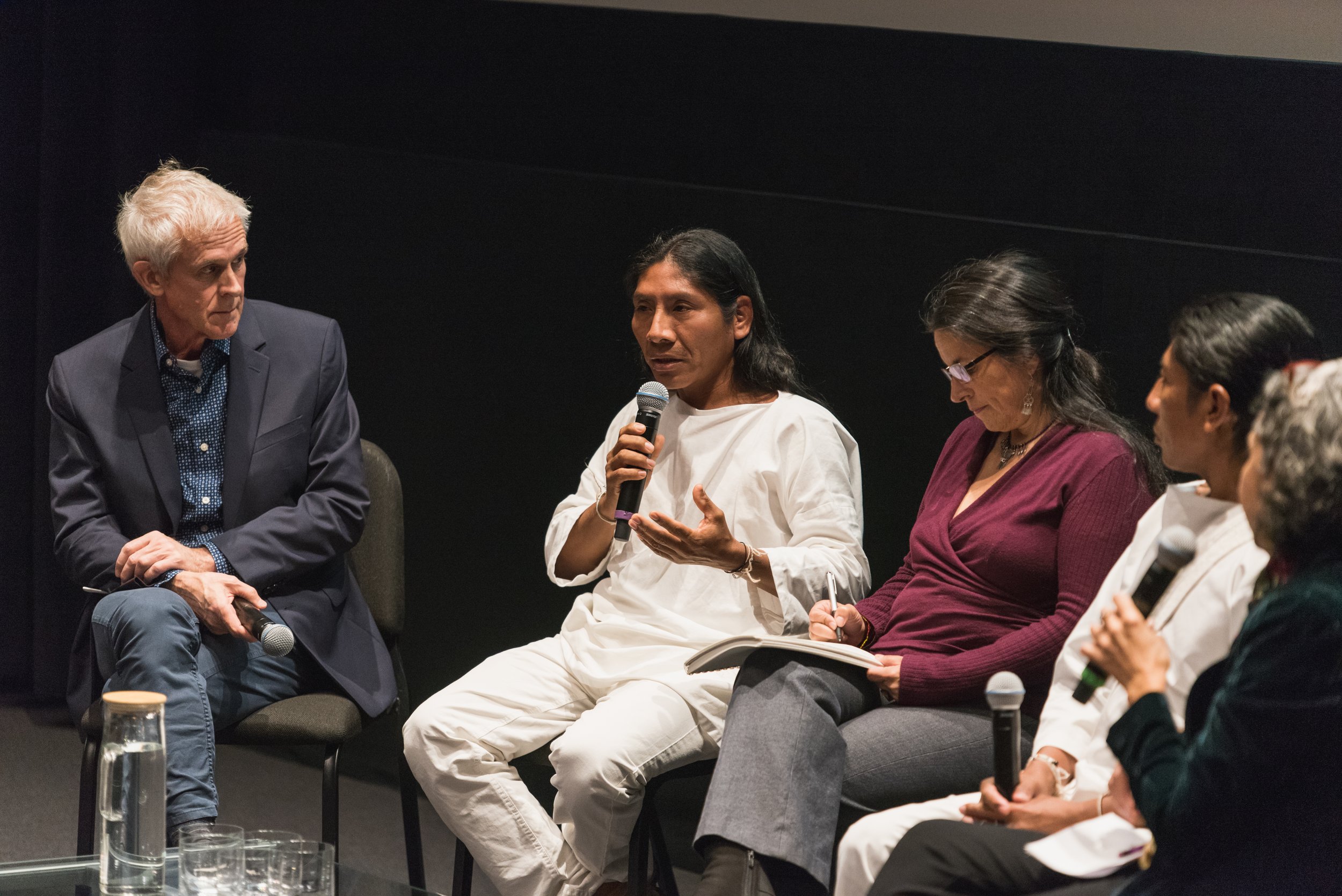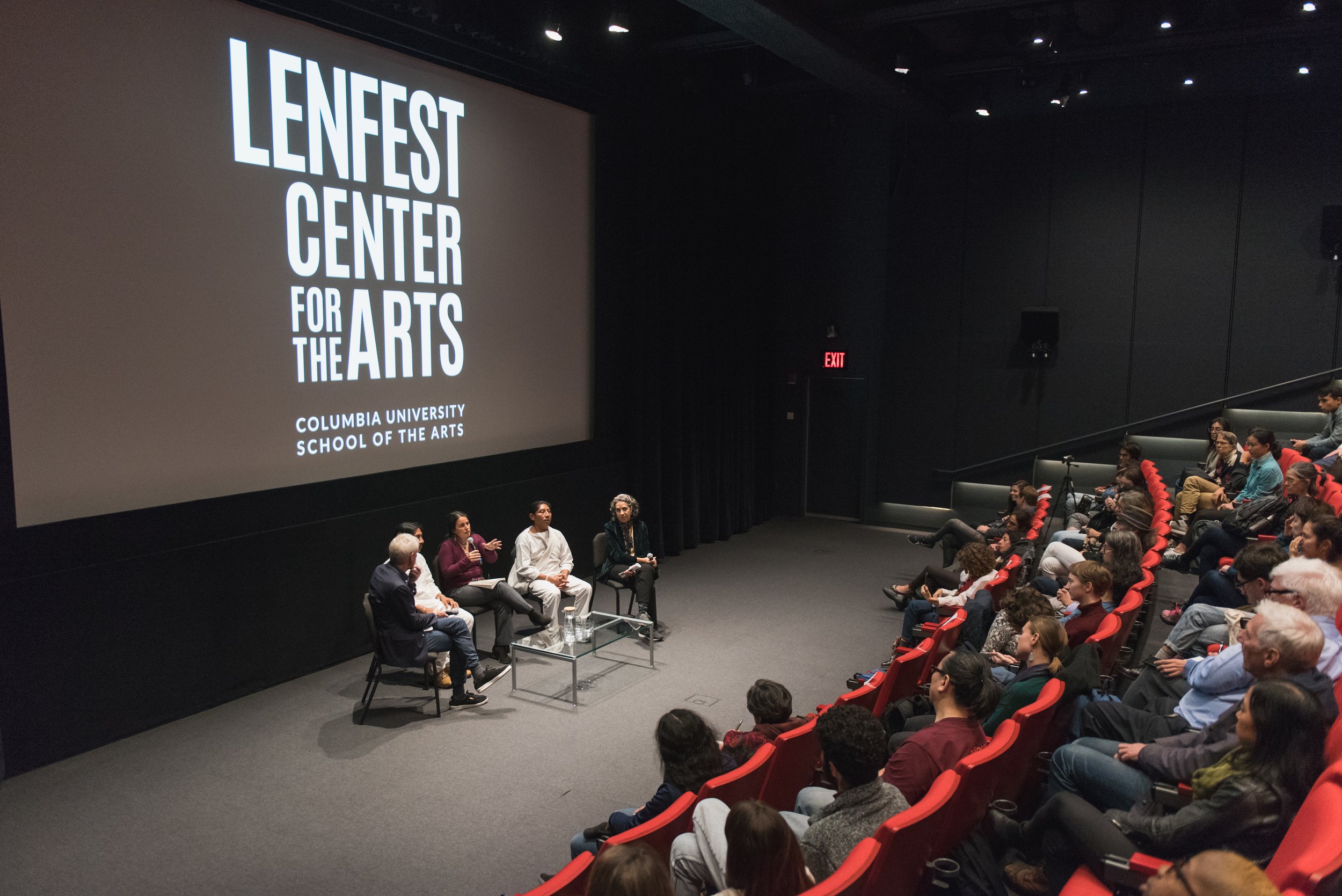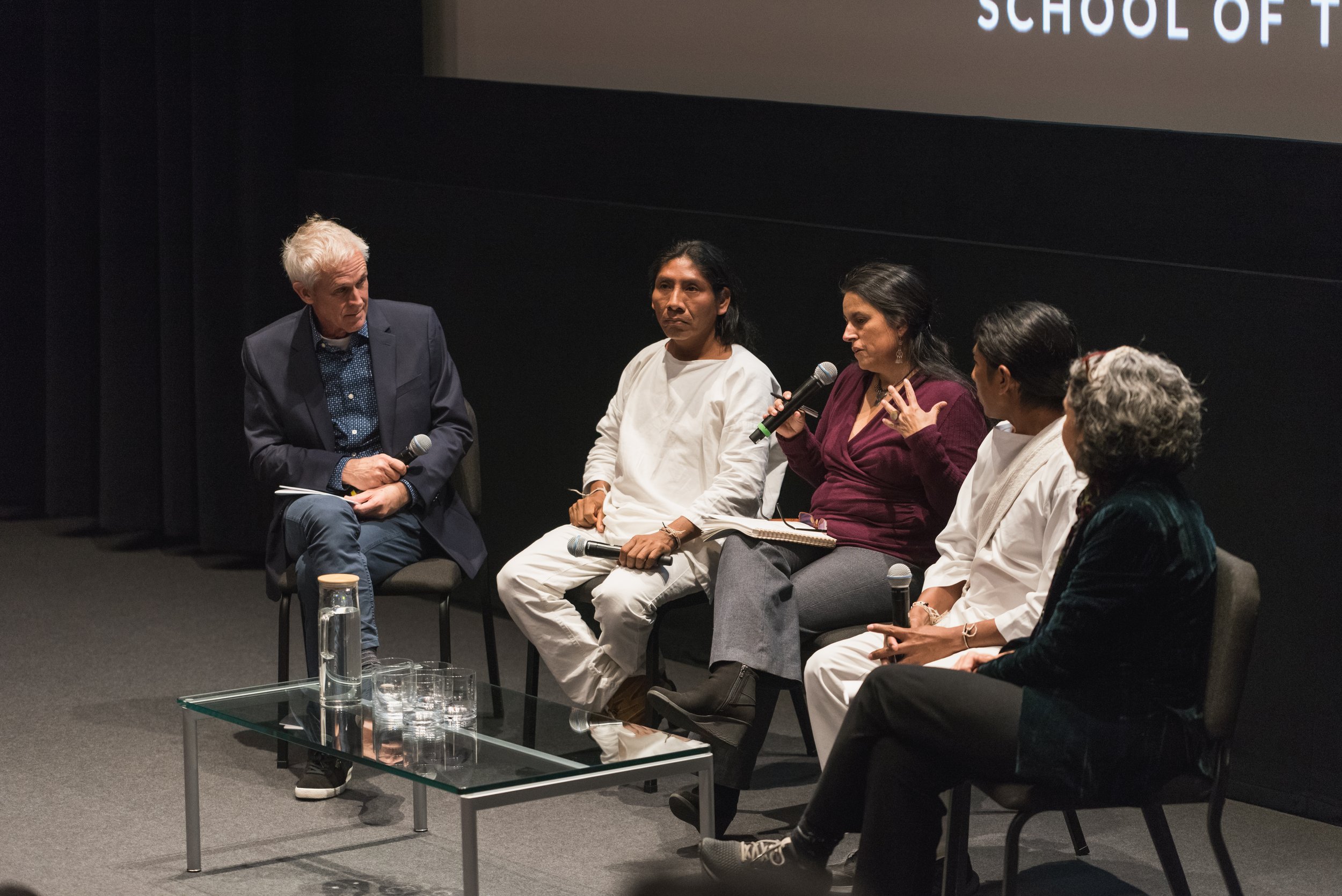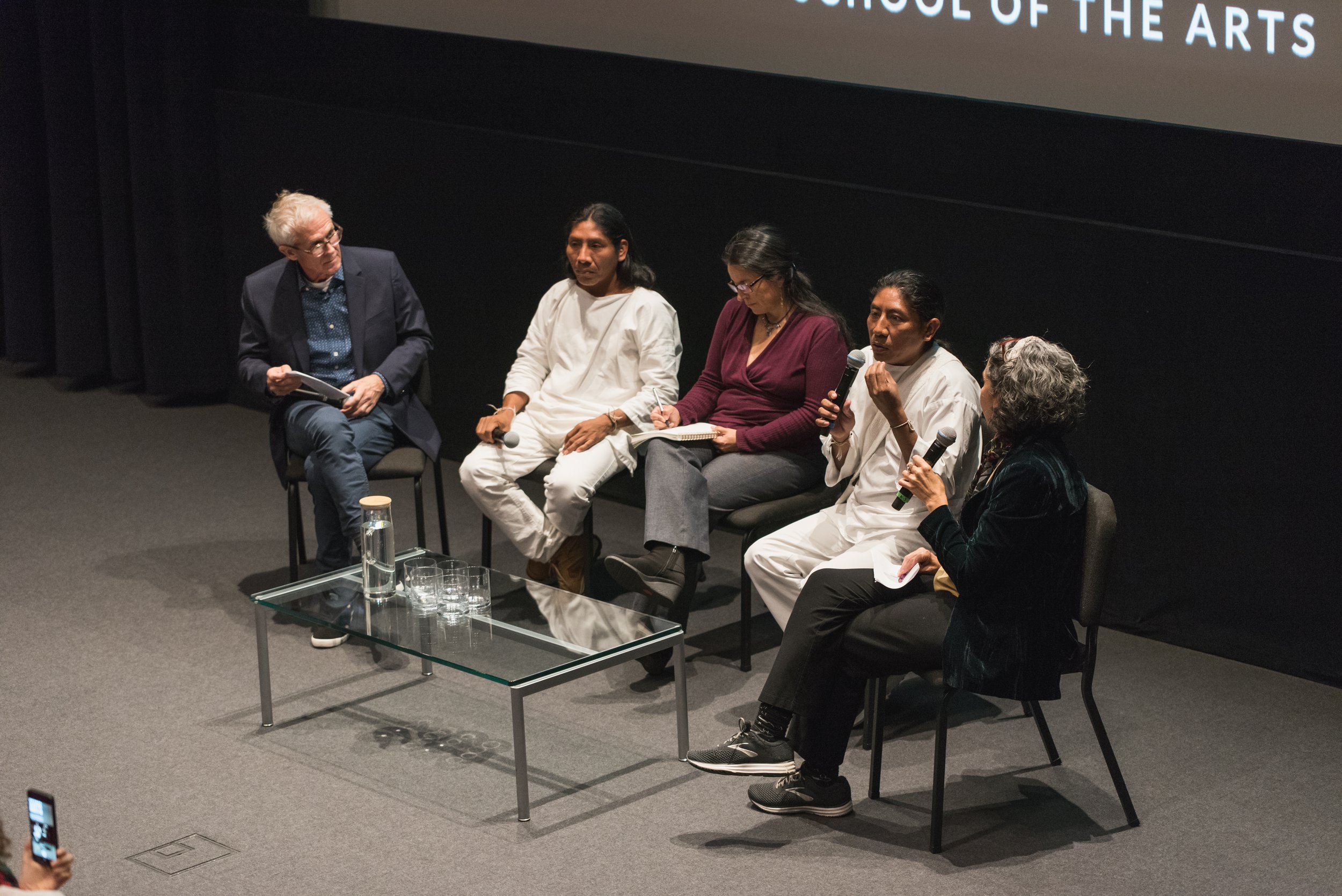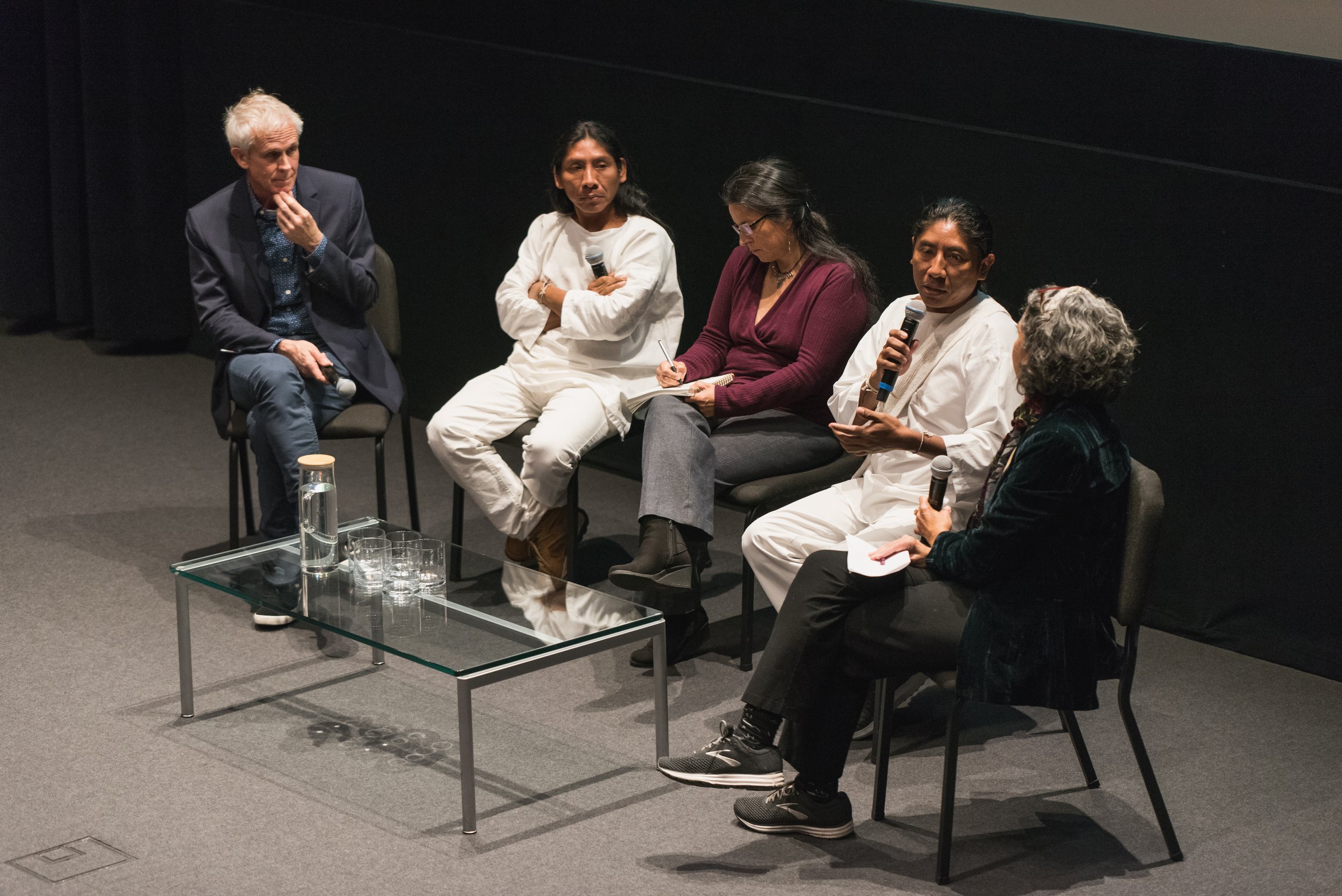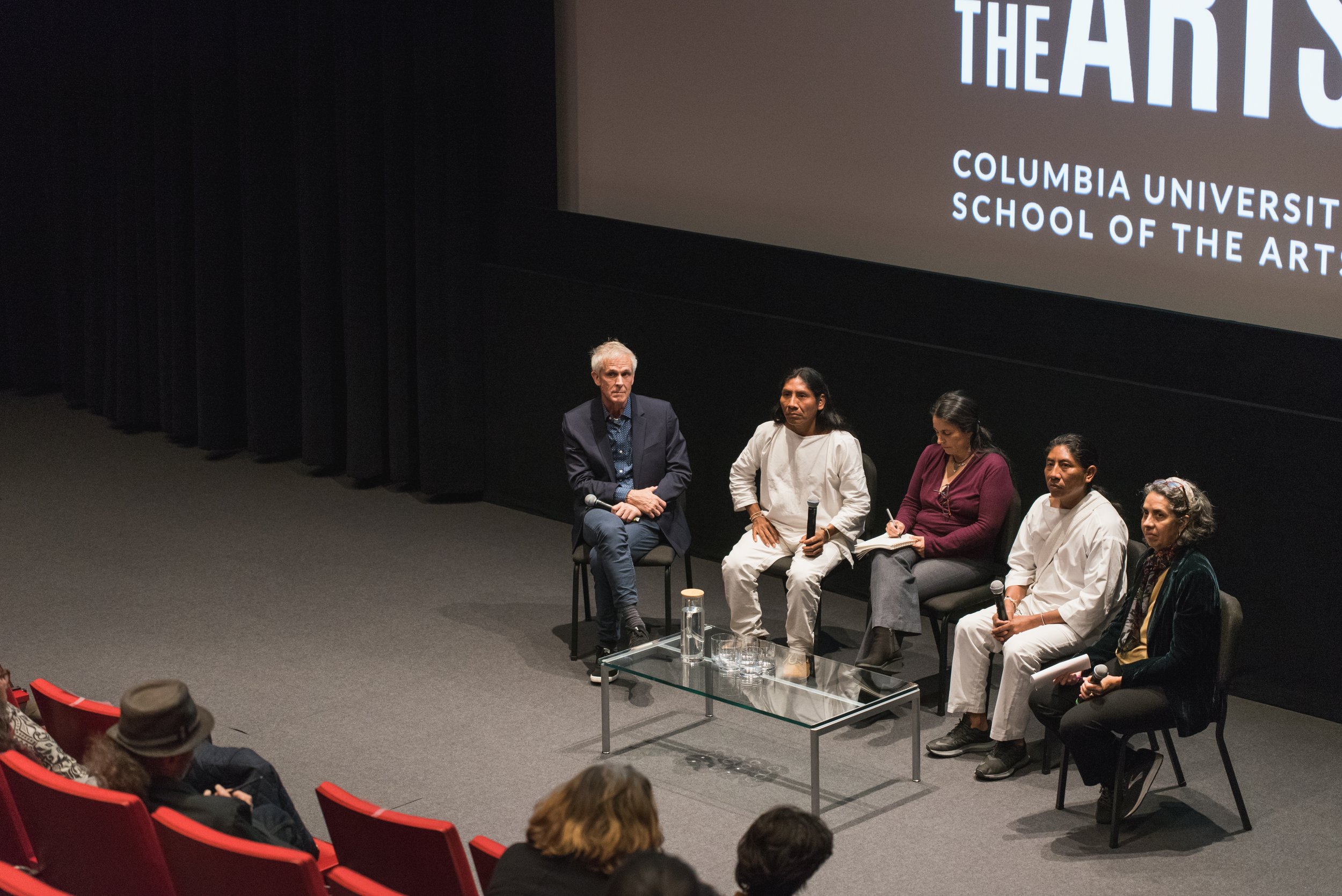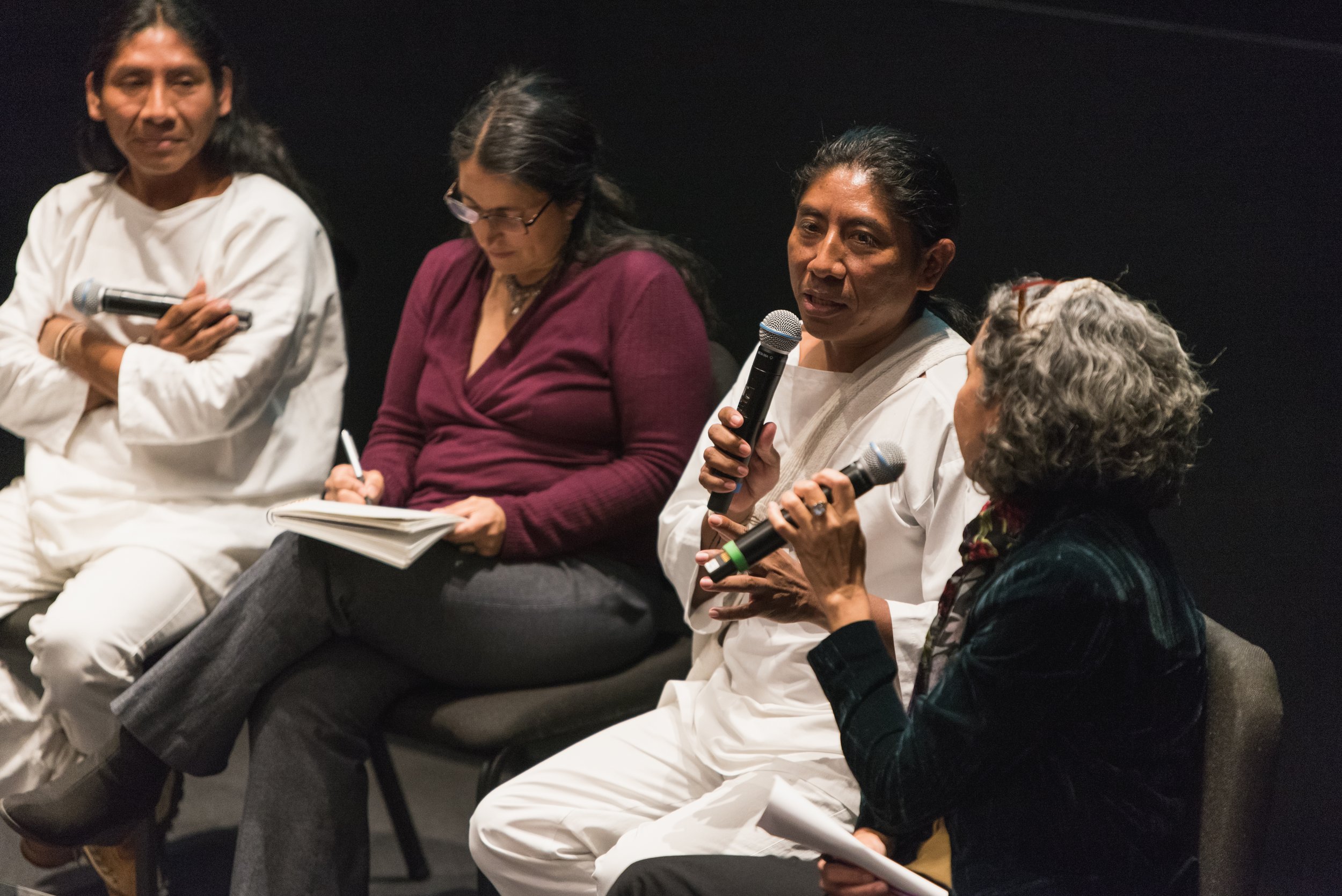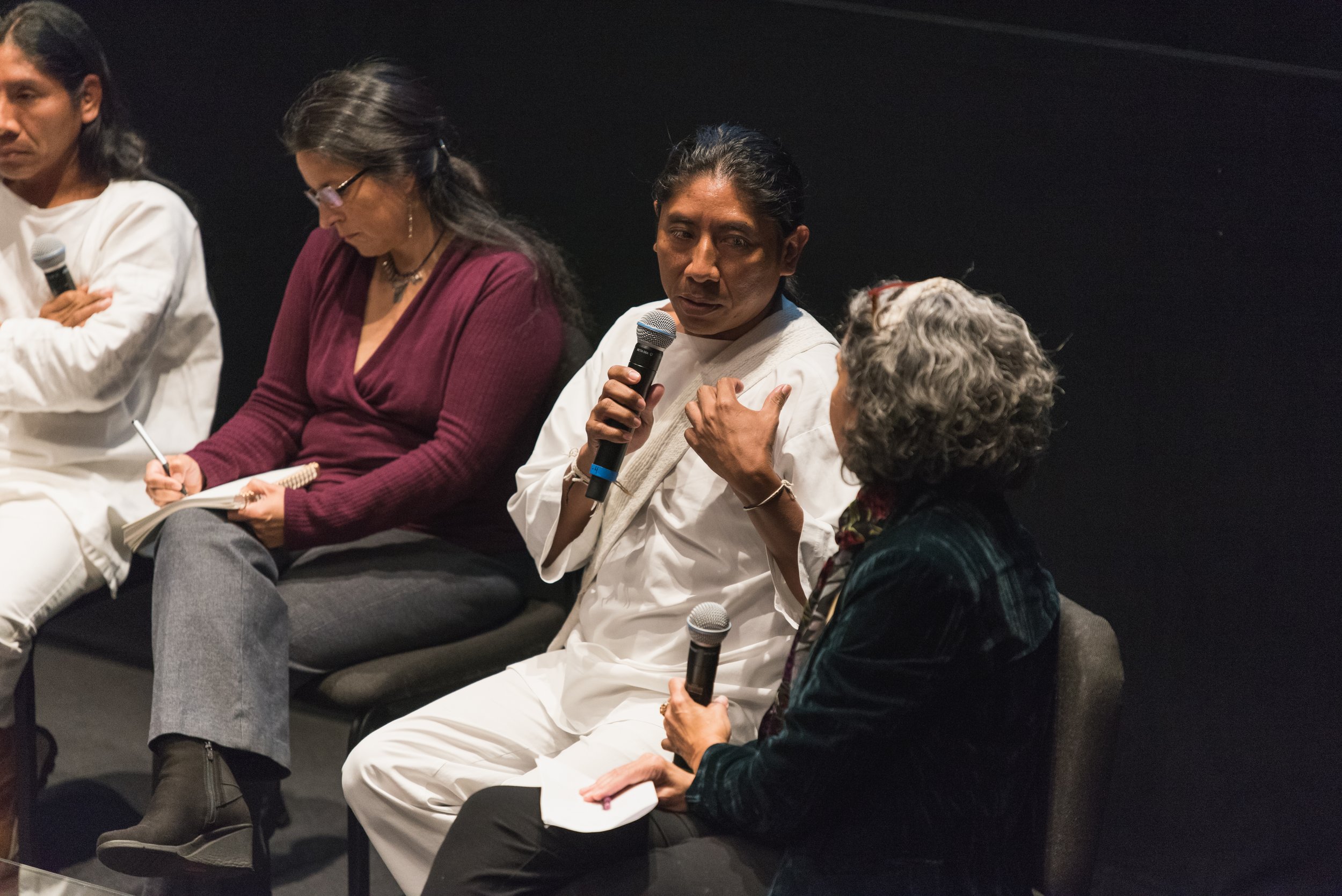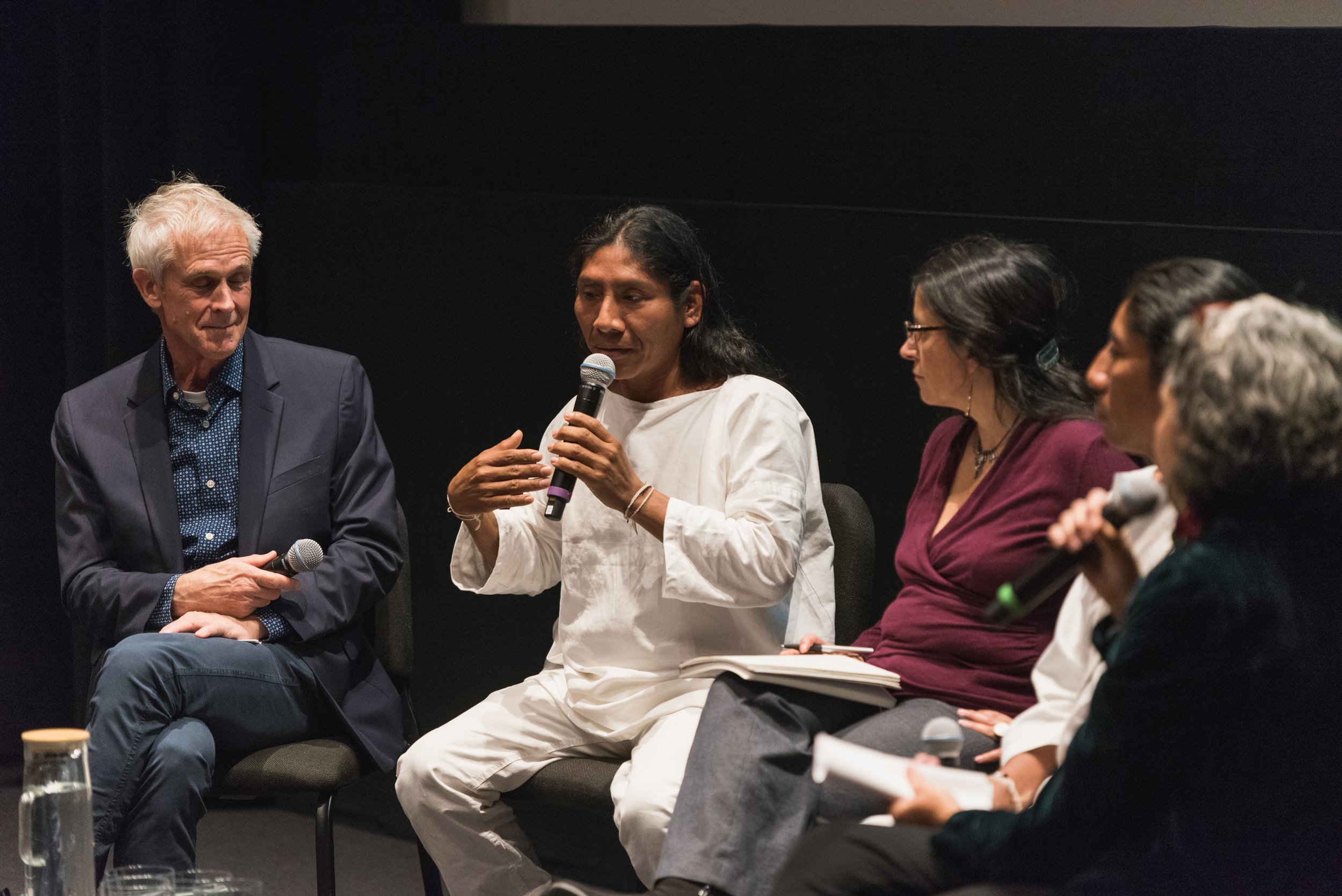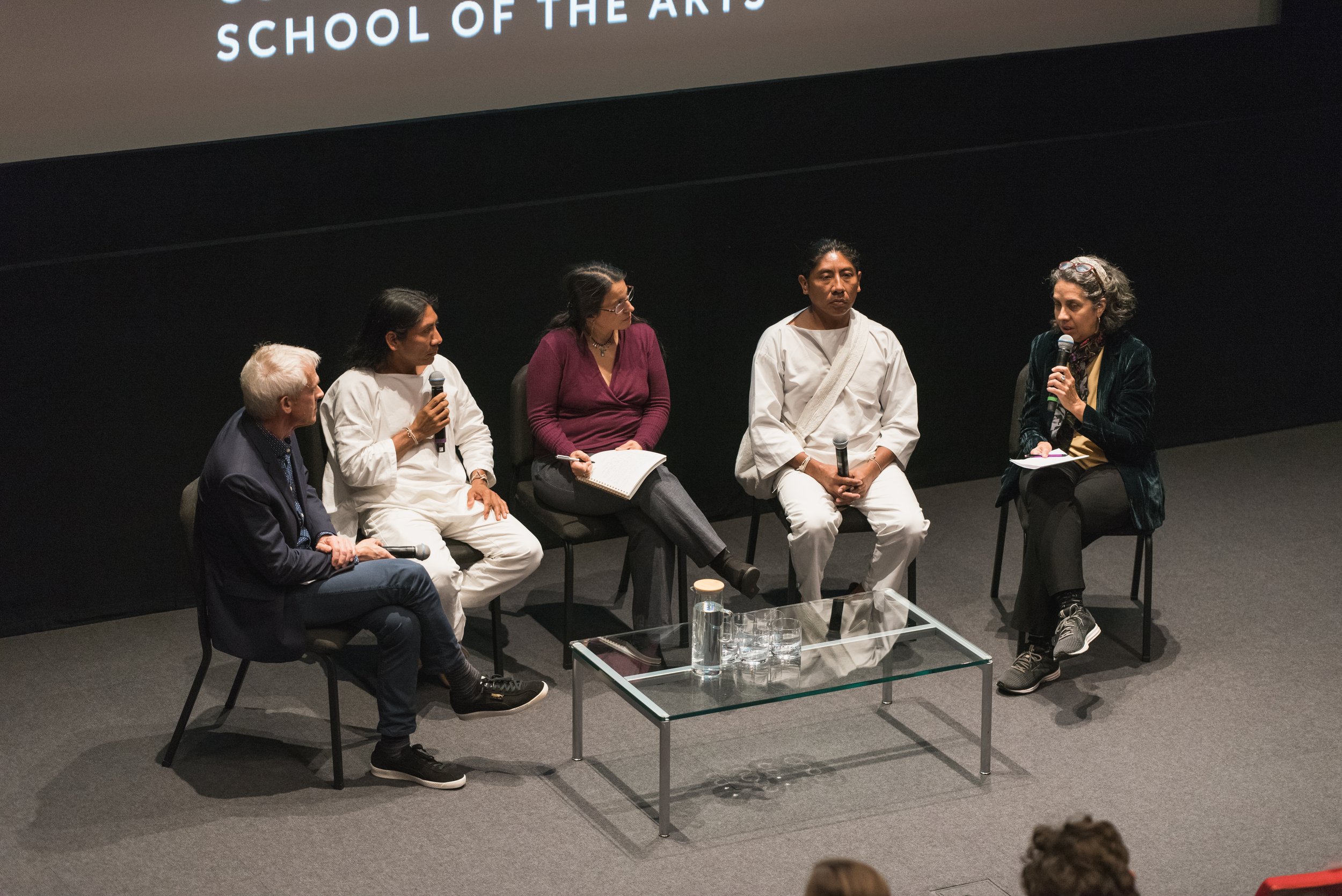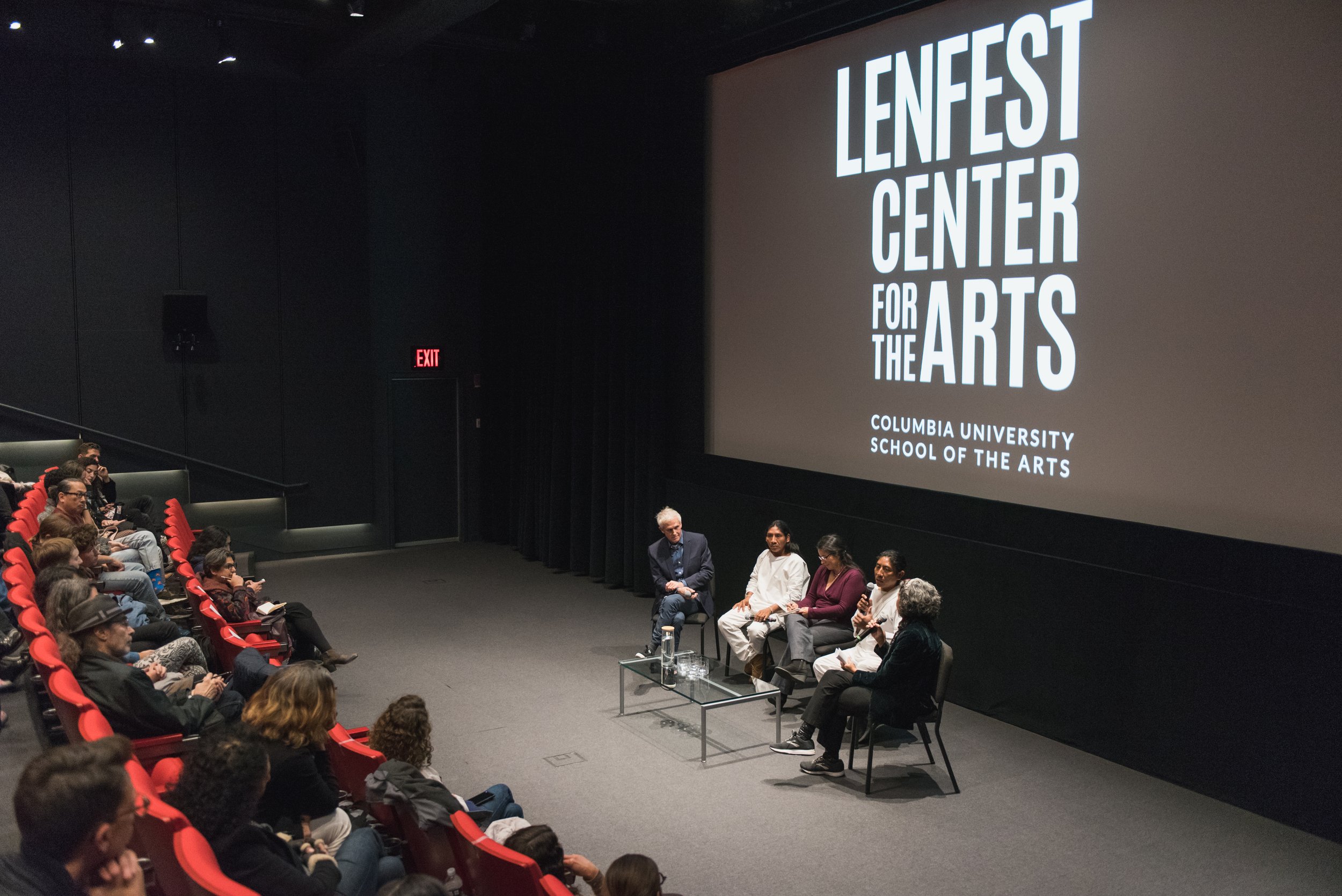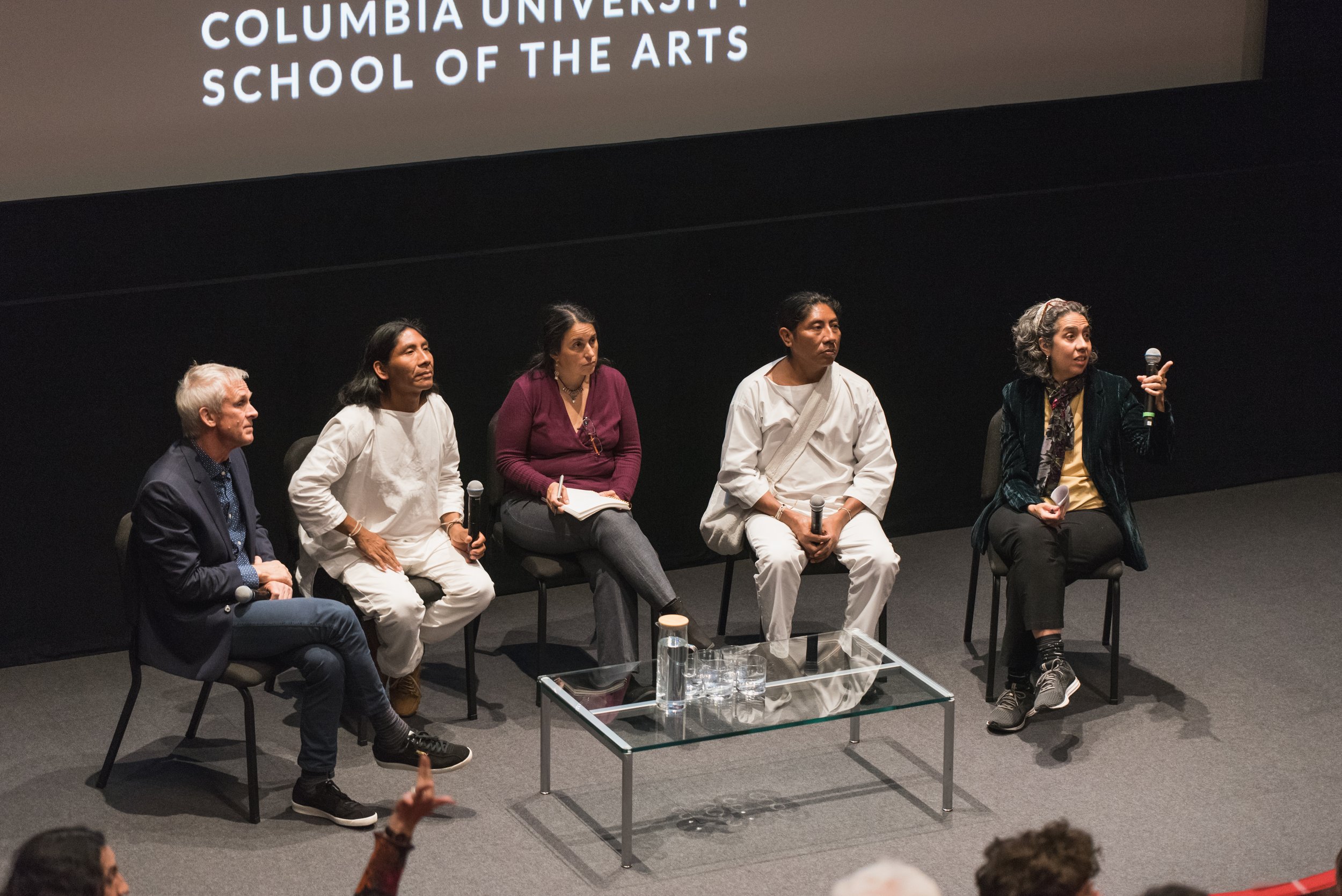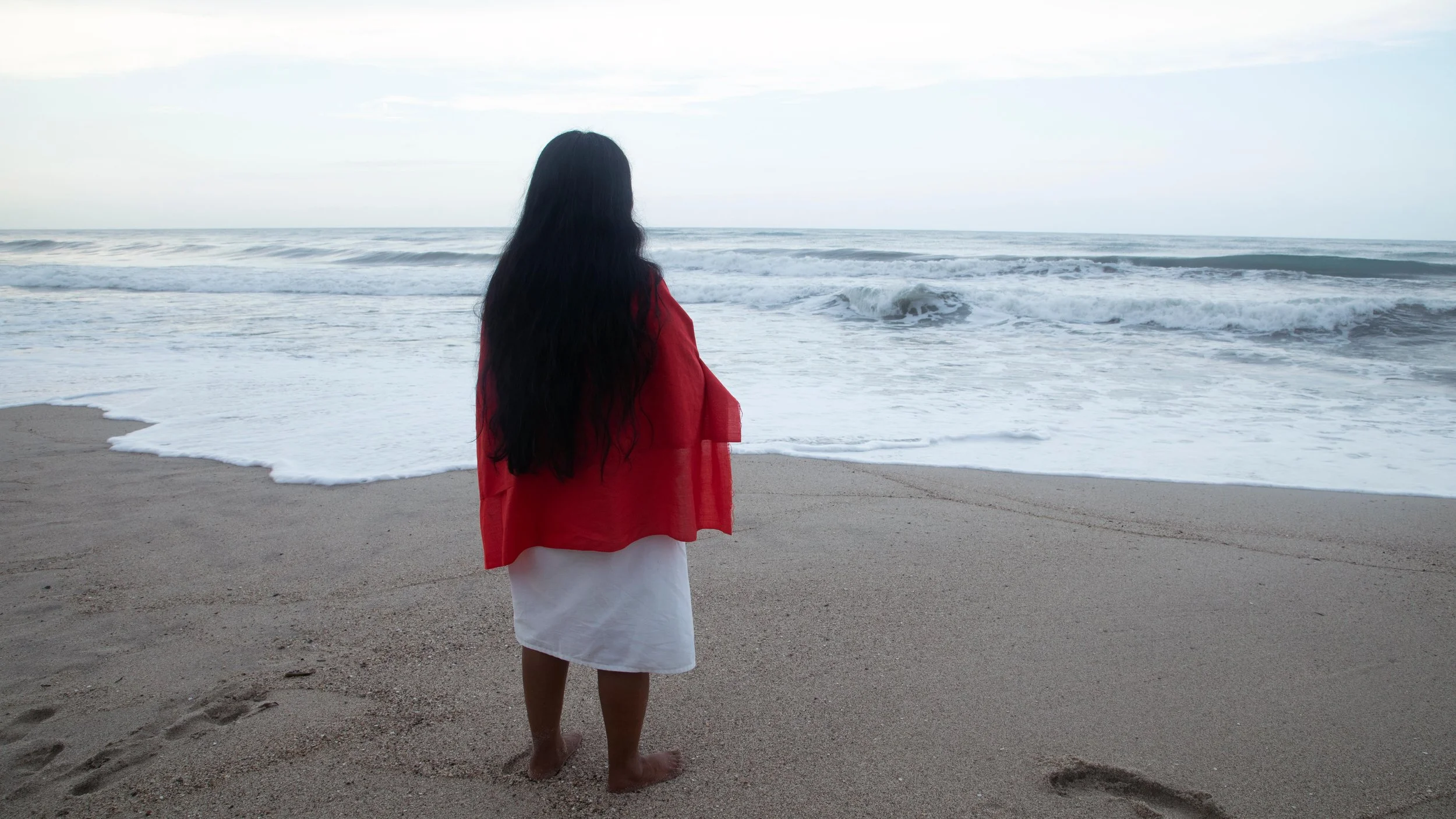Photo by Rafael Mojica
Ushui is about Sagas—women shamans—and their wisdom and relation to water; how to give birth and raise children, to sing to the spirits, and what to do when they turn against us like Shekuita, the bad thunder that destroyed the town of Kemakúmake. Produced by the Bunkuaneyuman Communications Collective of indigenous Wiwa people of the Sierra Nevada de Santa Marta in Colombia.
Screening followed by a conversation with Amalia Córdova, Smithsonian Institution, José Gregorio Mojica Gil, Researcher, and Rafael Mojica Gil, Photographer. Organized by Ron Gregg, Film and Media Studies, and Ana Ochoa, Music.
Co-presented by the Center for Ethnomusicology; Center for the Study of Ethnicity and Race; Center for the Study of Social Difference; Columbia University School of the Arts, Institute for Latin American Studies; and The Society of Fellows and Heyman Center for the Humanities.
About Water, Sound, and Indigenous Film
Since the mid-1980s, indigenous populations in Latin American and other parts of the world have turned to documentary film, often experimental in form and aesthetics, to engage with local environmental struggles between indigenous communities and transnational agribusinesses, hydroelectric projects, mining corporations, systematic food injustice, local entanglements in drug wars, and localized armed conflicts. Such conflicts are further provoked by the impact of climate change and the rise of extremist governments in the Americas. As stated by anthropologist Amalia Córdova, “the documentary has proven to be by far the weapon of choice for recording subaltern histories, contesting multinational extraction and development projects, and denouncing human rights violations on Native lands and bodies”
This film series focuses on indigenous film productions, that have engaged with these struggles, and the unique, radical aesthetics and sounds we find in these documentaries through the influence of indigenous experience and understanding of sustenance, environment, nature, and conservation. The film series will illustrate a range of work both produced by community-based indigenous filmmakers and collaborations between indigenous and non-indigenous, filmmakers considered “allies” by the communities.
–Ron Gregg and Ana Ochoa, Curators
